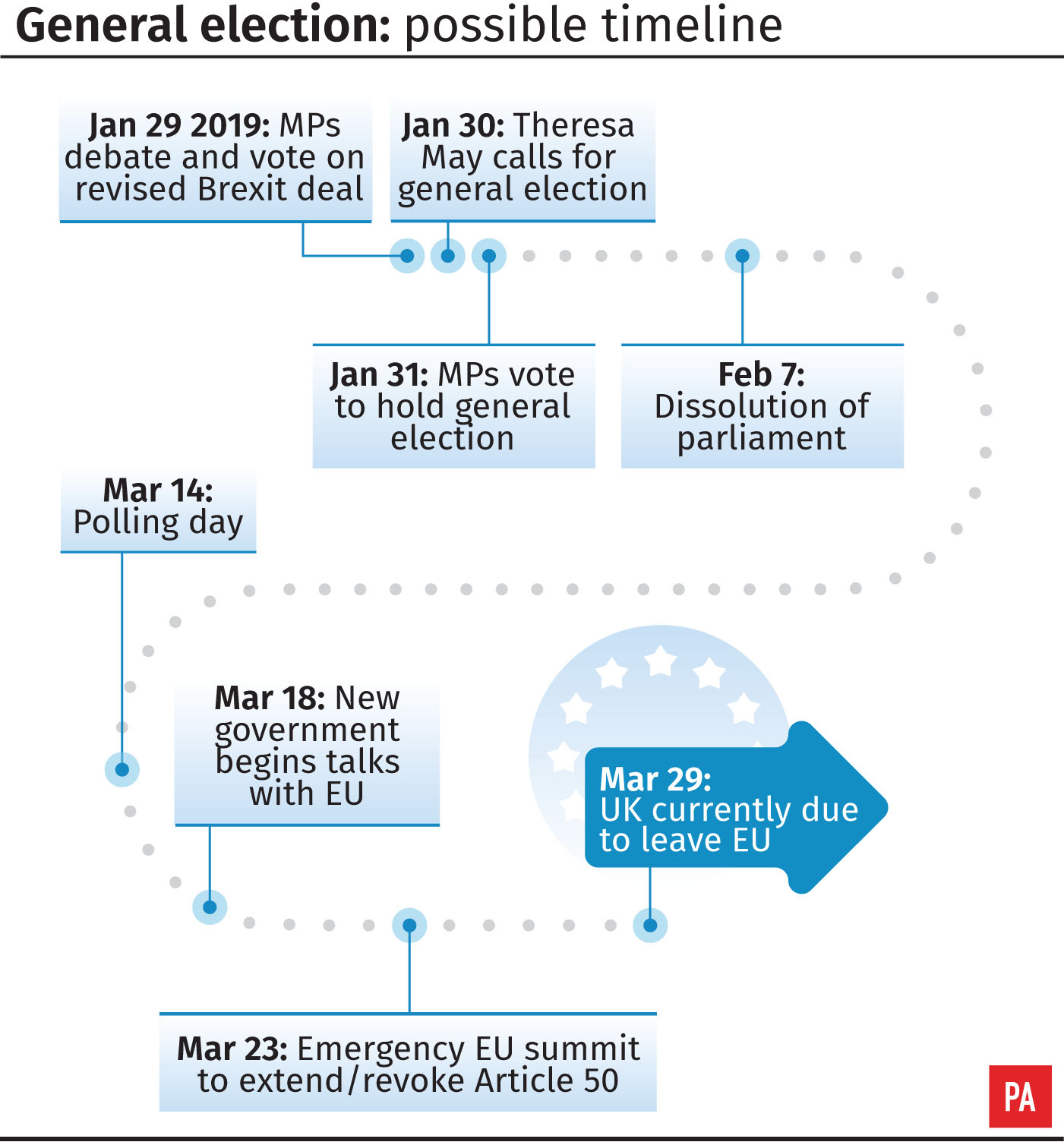
Time is running out for a general election to take place before the UK leaves the European Union on Friday March 29.
Elections in this country take place on a Thursday.
To hold an election on Thursday March 28 – the day before the UK exits the EU – would not be feasible, and Thursday March 21 is also too close to exit day, especially if the election result turns out to be inconclusive and no party has an overall majority.
Thursday March 14 is a possibility, though it would leave only two weeks for a new government to hold talks with the EU about changes to the Brexit deal and – potentially – extending or revoking Article 50.
By law, Parliament is dissolved 25 working days before a general election.
If an election was scheduled for March 14, dissolution would therefore take place on February 7.

Before dissolution, however, MPs have to debate and vote on a motion to hold a general election.
The motion would pass only if two-thirds of the total number of seats in the Commons (currently 434 out of 650 MPs) vote in favour.
In 2017, there was a gap of two weeks between MPs voting to hold a snap election and the date of dissolution.
A similar gap this year would mean the vote to hold an election needs to take place this week, on January 24 – with the announcement to call an election coming the day before, on January 23.
Even if MPs agreed to a shorter gap, there would still need to be a few days to allow any outstanding legislation to clear its passage through Parliament.
MPs are due to debate Theresa May’s revised proposals for leaving the EU on January 29.
One scenario could see the Prime Minister calling for an election the day after this debate, or even the same evening.
This would leave roughly a week to clear up parliamentary business before dissolution on February 7.
In short, were an election to take place smoothly before the UK leaves the EU, it would almost certainly need to be called by the end of this month.


Comments: Our rules
We want our comments to be a lively and valuable part of our community - a place where readers can debate and engage with the most important local issues. The ability to comment on our stories is a privilege, not a right, however, and that privilege may be withdrawn if it is abused or misused.
Please report any comments that break our rules.
Read the rules hereLast Updated:
Report this comment Cancel